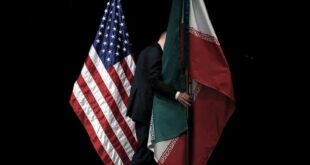Iranian President Mahmoud Ahmadinejad is expected to address the UN Security Council before it votes on a resolution that would impose new sanctions against his country’s nuclear activities. But it is not yet known when the meeting will be held, as the Council is expected to discuss the draft in a private meeting on Wednesday at the earliest and if some changes are suggested, it could take a few days to finalize the draft.
This will be Ahmadinejad’s first address to the Security Council where he is expected to defend Iran’s enrichment program and try to convince the skeptics that it geared towards peaceful purposes, including production of power.
Current President of the Council Dumisani Kumalo told reporters on Friday that he had received the request from Iran’s UN Ambassador Javad Zarif that Ahmadinejad would like to lead the country’s delegation to the remaining 14 members and “we haven’t received even one objection.”
So, I’m assuming it’s going to happen, he said.
In Washington, State Department Spokesman Sean McCormack said the visa requests for Ahmadinejad and his delegation have been routed through the American Embassy in Bern, Switzerland.
“We are going to make every effort to expedite the processing of these visa applications. Due to the strictures of law and regulation, I can’t at this point predict for you whether or not a visa will be issued, but I would point out that we did issue the visas previously when there was a request for President Ahmadinejad to travel to the UN,” he said.
“We take our host obligations seriously. When you have delegations who wish to travel to the UN for a UN visit, the way the Security Council works, it is the right of a state that is the subject of a UN Security Council resolution to request right of rebuttal. So that has been requested by the Iranians. And I guess President Ahmadinejad has decided that he wants to make that case himself,” the spokesman said.
The resolution against Iran was finalized by the five permanent members — US, Britain, Russia, France and China — and Germany after about two weeks’ of negotiations and given to the 10 non-permanent members on Thursday.
Asked when the resolution would be put to vote, Kumalo said no date has as yet been set as the Council has not even discussed it so far.
“If it is a question of six people writing the resolution and rest of us raising hands, then maybe they even don’t need rest of us,” he added, clearly indicating the simmering anger among non-permanent members for being left out of loop during the drafting stage of the resolution.
 Eurasia Press & News
Eurasia Press & News


